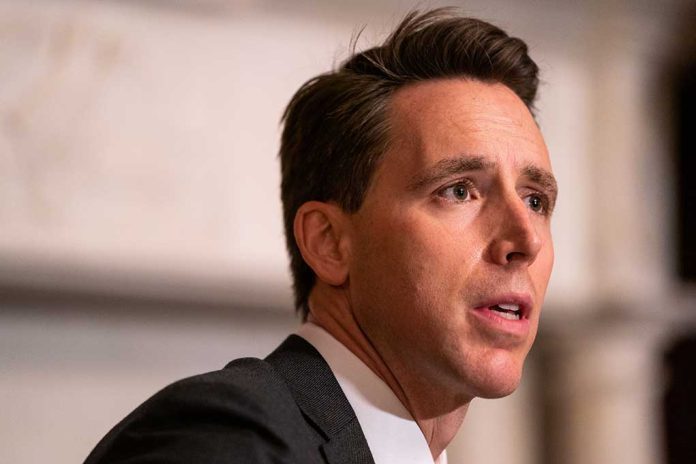
House Republicans have unveiled a comprehensive Medicaid reform package that would save nearly $880 billion over ten years while imposing stricter eligibility checks and work requirements, but critics warn it could leave millions without health coverage.
Key Takeaways
- House Republicans’ Medicaid reform bill introduces work requirements for able-bodied adults while protecting pregnant women and includes stricter eligibility verification processes.
- The proposal aims to save $880 billion over ten years and includes measures to prevent federal funding for states covering undocumented immigrants.
- Congressional Budget Office analysis projects 8.6 million Americans could lose health insurance by 2034 under the proposed changes.
- The bill faces opposition from Democrats and some Republicans, including Sen. Josh Hawley who questioned if this aligns with Trump voters’ expectations.
- Republicans plan to use budget reconciliation to bypass Senate filibuster rules, with a target completion date before July 4.
Proposed Medicaid Reforms Target Eligibility and Requirements
The newly released Republican Medicaid reform bill spans 160 pages and represents a major component of House Republicans’ efforts to advance President Trump’s agenda. The comprehensive plan focuses on tightening eligibility requirements, implementing stricter verification processes for citizenship status, and establishing work requirements for able-bodied adults between 19 and 64 years old who don’t have dependents. The proposal specifically exempts pregnant women and includes provisions for hardship exemptions.
The legislation also targets provider screening protocols and would reduce federal funding to states that extend Medicaid coverage to undocumented immigrants. Notably, the bill avoids deeper structural changes to Medicaid that had been floated in previous Republican proposals, such as per capita spending caps or reductions in federal matching rates for the traditional Medicaid program. This approach appears designed to attract support from moderate Republicans who had expressed concerns about more dramatic overhauls.
GOP PROPOSAL FOR MEDICAID CUTS: The House Republicans' legislation includes work requirements, stricter eligibility checks, citizenship verification and funding cuts to states. https://t.co/cZ8Hn9wjMg
— NBC4 Washington (@nbcwashington) May 12, 2025
Fiscal Impact and Political Calculations
According to Congressional Budget Office projections, the proposed Medicaid changes would reduce federal spending by approximately $715 billion through 2034, contributing to a broader package aimed at achieving $880 billion in savings. The reforms include prohibiting Medicaid funding for gender transition procedures for minors and reducing cost-sharing for certain Medicaid expansion patients. These changes come as Trump has ruled out cuts to Medicare and Social Security, leaving Medicaid as the primary target for healthcare savings.
Republican supporters, including Rep. Brett Guthrie of Kentucky, argue the reforms will strengthen Medicaid for children, elderly, and disabled beneficiaries who rely on the program most. However, the proposal is creating divisions even within Republican ranks. Some fiscal conservatives believe the bill “doesn’t go far enough” in reforming the entitlement program, while others like Senator Josh Hawley of Missouri question whether Medicaid cuts align with what Trump voters expected when casting their ballots in November.
Opposition and Potential Impact
Democrats have mounted unified opposition to the proposal. Rep. Frank Pallone of New Jersey accused Republicans of “lying when they claim they aren’t going to cut Medicaid and take away people’s health care.” Meanwhile, Senator Ron Wyden, the top Democrat on the Senate Finance Committee, called it “the largest Medicaid cut in history” and warned the bill “must not pass.” Their concerns center on CBO projections indicating 8.6 million Americans could lose health insurance coverage by 2034 under the proposed changes.
The legislative path forward remains challenging. Republicans plan to use the budget reconciliation process to bypass the Senate filibuster, aiming to complete the package by July 4th with a hard deadline in August due to debt limit concerns. The Medicaid reforms are part of a broader spending package that includes extending Trump’s 2017 tax cuts, rolling back clean energy provisions, and increasing funding for defense and border security. With slim margins in both chambers, Republicans need near-unanimous support from their members to advance the legislation.
Sources:
Fight over Medicaid cuts heats up as House Republicans release bill
House GOP Medicaid proposal sets work requirements and a showdown with fiscal hawks







